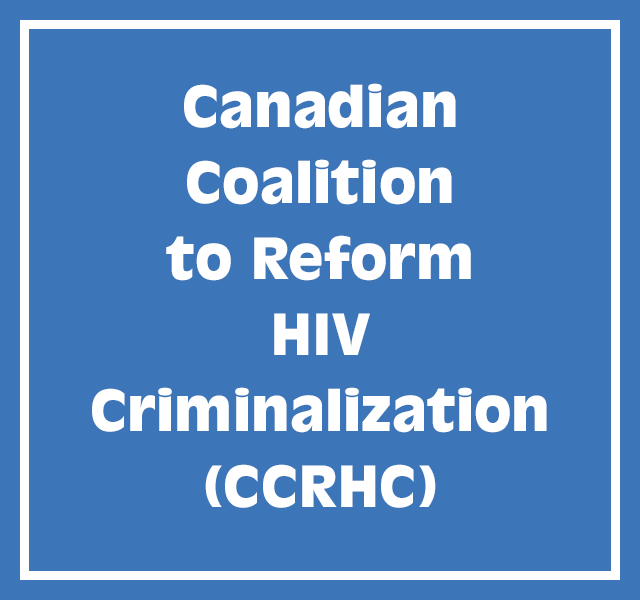For immediate release – Aussi disponible en français :
The Government of Canada knows that law reform is needed but has yet to act in Parliament — and the world is watching as international advocates gather at AIDS 2024 in Munich
The following statement can be attributed to the Canadian Coalition to Reform HIV Criminalization
July 16, 2024 — Toronto, ON — In Canada, people living with HIV are still waiting for action from their government as they live under the constant threat of being criminalized for their health condition. At the International AIDS Conference held in Montreal in 2022, the Government of Canada announced its intention to launch public consultations on law reform, ostensibly to end the harms of the criminalization of HIV non-disclosure in this country. This is a decades-long issue in Canada, a country long known as a global “hot spot” for HIV criminalization.
Those federal consultations ended in January 2023. But, to date, no bill has been introduced in Parliament to stop criminalization and end the harms endured by people living with HIV. The Government of Canada’s unacceptably slow pace in adopting meaningful law reform is in full view as the world gathers for AIDS 2024 in Munich from July 22-26.
Today, members of the Canadian Coalition to Reform HIV Criminalization (CCRHC) are joined by international advocates to call on the Government of Canada to act on the basis of research and evidence, and the results of its own consultations and those of the CCRHC, and introduce a bill to amend the Criminal Code that strictly limits the scope of HIV criminalization. Prior to the Government’s 2022/23 consultations on HIV law reform, the CCRHC had already conducted two national consultations — in 2017 and 2022 — that found an overwhelming consensus that the criminal law should be used only as a measure of last resort and be strictly limited in its scope and application. Given the upcoming 2025 federal election, time is of the essence to end what Justice Canada itself first described in 2017 as the “overcriminalization of HIV.”
Canada’s much-criticized laws mean people living with HIV can be charged with aggravated sexual assault, listed on the sex offender registry, and spend years in prison for allegedly not telling their sexual partner of their HIV status in certain circumstances. People living with HIV continue to be criminalized in cases where there was little to no possibility of transmission, no intent to transmit, and no actual transmission.
More than 220 people have been prosecuted for alleged HIV non-disclosure since 1989, with Black men vastly overcharged, and Indigenous people (including women) and gay men facing greater risk of prosecution because of their overrepresentation within the overall population of people living with HIV. In addition to potential imprisonment and being placed on sex offender registries, charges under these laws can also result in barriers to housing and employment, social exclusion, increased risks of violence and abuse, and psychological harms. To be clear, everyone in Canada who is living with HIV is forced to live in fear of criminalization, whether they are ever prosecuted or not. Criminalization reinforces and codifies the ongoing stigma experienced each and every day by people living with HIV in Canada.
The Government of Canada is running out of time to respect its repeated commitment to long-overdue law reform. People living with HIV were asked to participate in consultations in good faith, and many were given some hope by the announcement made by the government at the International AIDS Conference in Montreal two years ago. People living with HIV deserve better than false hope — they deserve a government that will honour the promise made to them and end the criminalization of HIV non-disclosure in this country.
We need action, and we need it today, to:
- Remove non-disclosure, exposure, or transmission of HIV or other sexually transmitted and blood-borne infections (STBBIs) from the reach of sexual assault laws, including designation as a sex offender.
- Enact reforms to ensure that any other provisions in the Criminal Code are not used to further stigmatize and discriminate against people living with HIV and STBBIs. Prosecution under any offence in the Criminal Code should be limited to cases of actual, intentional transmission.
- End the deportation of non-citizens following conviction.
- Review past convictions so that people living with HIV previously criminalized under these harmful and stigmatizing laws no longer have to live with the label of a sex offender and criminal.
-30-
